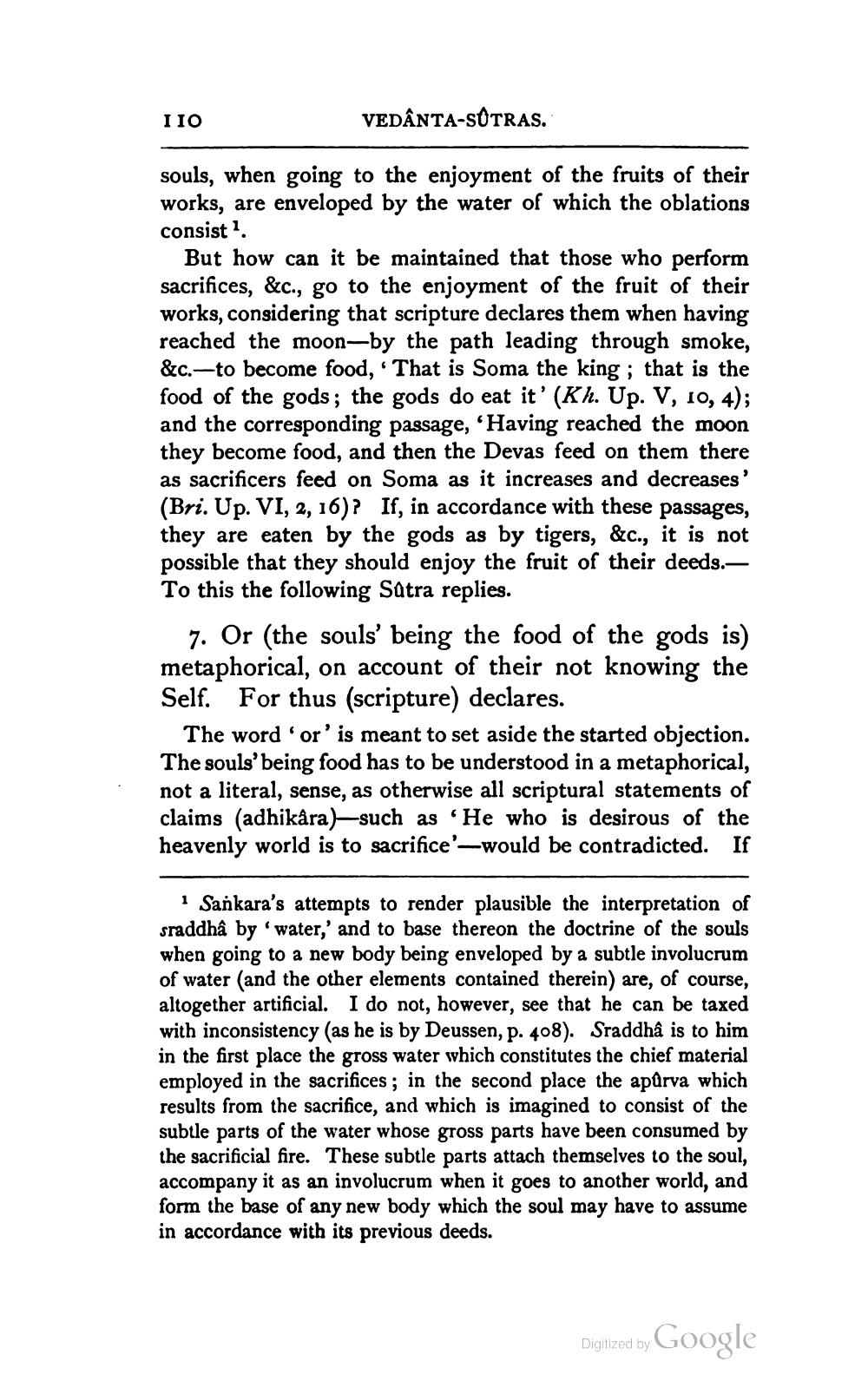________________
11ο
VEDÂNTA-SOTRAS.
souls, when going to the enjoyment of the fruits of their works, are enveloped by the water of which the oblations consist 1.
But how can it be maintained that those who perform sacrifices, &c., go to the enjoyment of the fruit of their works, considering that scripture declares them when having reached the moon-by the path leading through smoke, &c.—to become food, 'That is Soma the king ; that is the food of the gods; the gods do eat it' (Kh. Up. V, 10, 4); and the corresponding passage, 'Having reached the moon they become food, and then the Devas feed on them there as sacrificers feed on Soma as it increases and decreases' (Bri. Up. VI, 2, 16)? If, in accordance with these passages, they are eaten by the gods as by tigers, &c., it is not possible that they should enjoy the fruit of their deeds.To this the following Satra replies.
7. Or (the souls' being the food of the gods is) metaphorical, on account of their not knowing the Self. For thus (scripture) declares.
The word 'or' is meant to set aside the started objection. The souls' being food has to be understood in a metaphorical, not a literal, sense, as otherwise all scriptural statements of claims (adhikara)-such as 'He who is desirous of the heavenly world is to sacrifice'-would be contradicted. If
Sankara's attempts to render plausible the interpretation of sraddhâ by 'water,' and to base thereon the doctrine of the souls when going to a new body being enveloped by a subtle involucrum of water and the other elements contained therein are, of course, altogether artificial. I do not, however, see that he can be taxed with inconsistency (as he is by Deussen, p. 408). Sraddha is to him in the first place the gross water which constitutes the chief material employed in the sacrifices; in the second place the apūrva which results from the sacrifice, and which is imagined to consist of the subtle parts of the water whose gross parts have been consumed by the sacrificial fire. These subtle parts attach themselves to the soul, accompany it as an involucrum when it goes to another world, and form the base of any new body which the soul may have to assume in accordance with its previous deeds.
Digitized by
Digilzed by Google




